Search
Search Results
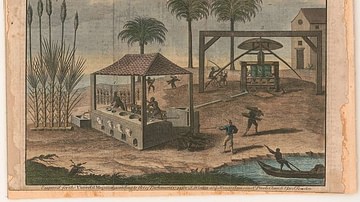
Article
Sugar & the Rise of the Plantation System
From a humble beginning as a sweet treat grown in gardens, sugar cane cultivation became an economic powerhouse, and the growing demand for sugar stimulated the colonization of the New World by European powers, brought slavery to the forefront...
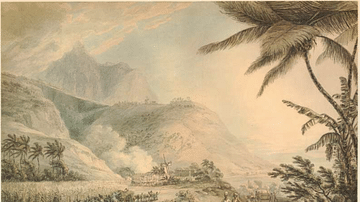
Article
Life on a Colonial Sugar Plantation
Raising sugar cane could be a very profitable business, but producing refined sugar was a highly labour-intensive process. For this reason, European colonial settlers in Africa and the Americas used slaves on their plantations, almost all...
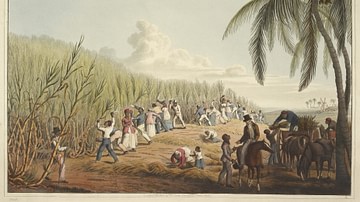
Article
Slavery in Plantation Agriculture
The first plantations in the Americas of sugar cane, cocoa, tobacco, and cotton were maintained and harvested by African slaves controlled by European masters. When African slavery was largely abolished in the mid-1800s, the center of plantation...

Definition
Sugar Act
The Sugar Act of 1764, also known as the American Revenue Act, was legislation passed by the Parliament of Great Britain on 5 April 1764 to crack down on molasses smuggling in the American colonies and to raise revenue to pay for the colonies'...

Article
Slavery in Colonial America
Slavery in Colonial America, defined as white English settlers enslaving Africans, began in 1640 in the Jamestown Colony of Virginia but had already been embraced as policy prior to that date with the enslavement and deportation of Native...
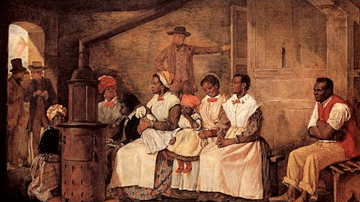
Article
Virginia Slave Laws and Development of Colonial American Slavery
Racialized chattel slavery developed in the English colonies of North America between 1640-1660 and was fully institutionalized by 1700. Although slavery was practiced in the New England and Middle colonies, and Massachusetts Bay Colony passed...
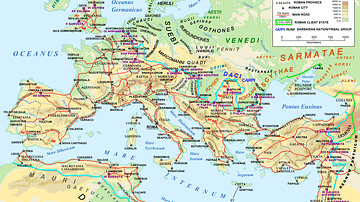
Article
Slavery in the Roman World
Slavery was an ever-present feature of the Roman world. Slaves served in households, agriculture, mines, the military, workshops, construction and many services. As many as 1 in 3 of the population in Italy or 1 in 5 across the empire were...
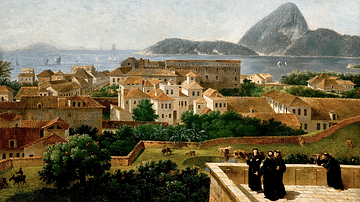
Definition
Portuguese Brazil
With a wealth of natural resources, Brazil was by far the most important colony in the Portuguese empire and was, at one time or another, the world’s leading producer of sugar, diamonds, and tobacco. Colonised from the 1530s, most settlements...
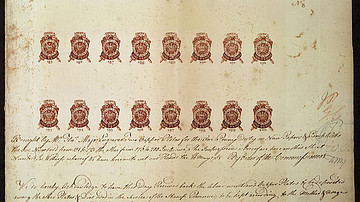
Definition
Stamp Act
The Stamp Act of 1765 was the first direct tax imposed on the 13 American colonies by the Parliament of Great Britain. It required the colonists to pay a tax on all printed materials including newspapers, legal documents, magazines, and playing...

Image
Slaves on an Antiguan Sugar Plantation
A scene showing slaves working on an Antiguan sugar plantation. Created in 1779 by Thomas Hearne. On the left are slaves cutting the cane, in the centre is the windmill for processing the cane and on the right slaves transport the refined...